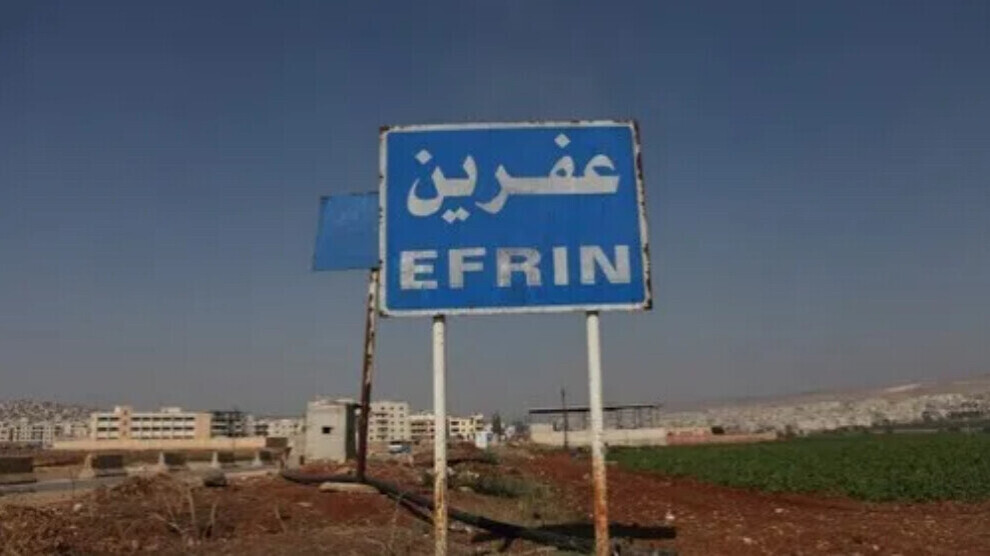5 years ago, the invasion of Afrin
Five years ago thousands of people around the world took to the streets protesting Turkey’s illegal invasion of Afrin.
Five years ago thousands of people around the world took to the streets protesting Turkey’s illegal invasion of Afrin.

On 20 January 2018, the Turkish state launched a war on the region of Afrin, the western canton of the Autonomous Administration of North and East Syria.
Day and night, towns and villages, refugee camps and historical sites were bombarded by Turkish warplanes and artillery. The attack by Turkey and its allied jihadist militias continued until the 18th of March.
Since then, the canton of Afrin in northern Syria has been under Turkish occupation. War crimes have been systematically committed since the invasion. A large part of the population displaced from Afrin has been living in precarious conditions in the neighboring Shehba region.
Hundreds of civilians were killed and many hundreds more were injured in the course of this war. Hundreds of thousands of people were displaced and forced to leave their homes. Since then, Afrin has been under Turkish occupation and all of the previously established achievements of self-organization of local communities have been destroyed.
The diversity of the people living there is no longer expressed and the women’s rights that were fought for have been effectively abolished under the Turkish occupation. The vacant houses of displaced families were handed over by the Turkish military to families of fighters from Islamist and other Turkish-backed militias.
New regional administrations were established under Turkish control as part of the demographic change of the region. At the same time, the Turkish invasion has provided encouragement and an opportunity for ISIS to reorganize.
The region of Afrin in particular played a central role as a center of the women’s revolution and in the establishment of direct and participatory democratic structures in North and East Syria. Here, women’s institutions and women’s communes and councils were established, based on direct democracy, and helped to break down gender inequality. Numerous historical archaeological sites in the region, part of the heritage of local matriarchal societies, were deliberately destroyed during the Turkish state’s invasion and following occupation in order to erase and occupy the memory of a region and a piece of women’s history. Among them, for example, the Tel Aştar temple in Ain Dara, dedicated to the goddess Iştar.
The destruction extends to massive devastation and irreversible damage to Afrin’s rich nature and ecosystem of mountains, rivers and fertile soil. Numerous fields have been burned and tens of thousands of trees, including a large number of olive trees, have been cut down as a result of the occupation by Turkey and its jihadist militias.
The grassroots democratic structures previously established by the local people, with communal organised communities and councils, which enabled the pluralistic coexistence of the different peoples as well as their political participation, was replaced with the Turkish occupation by a project of demographic change and the annihilation not only of local Kurds, their language, culture and history, but of the diverse coexistence of the people in the region.